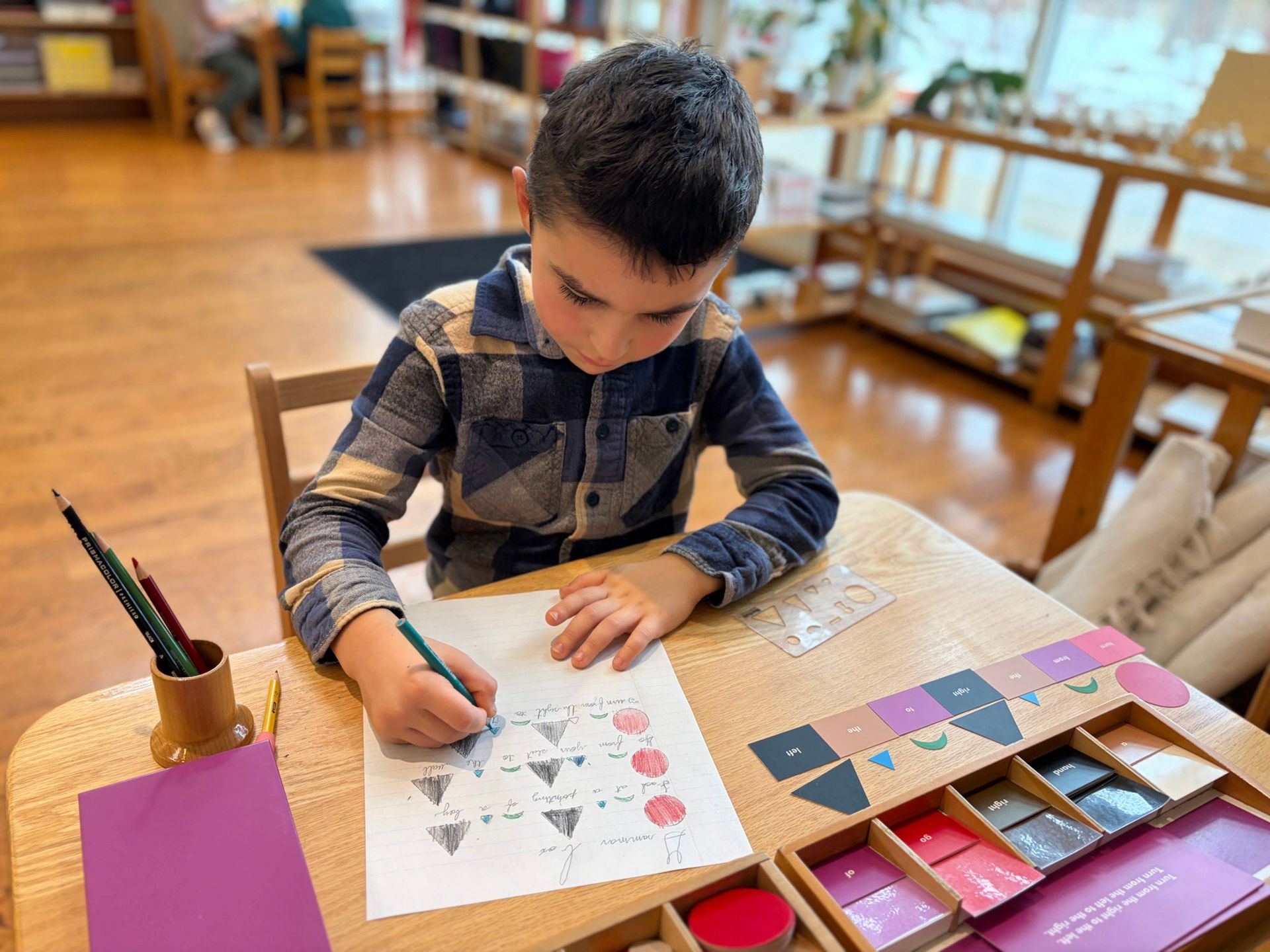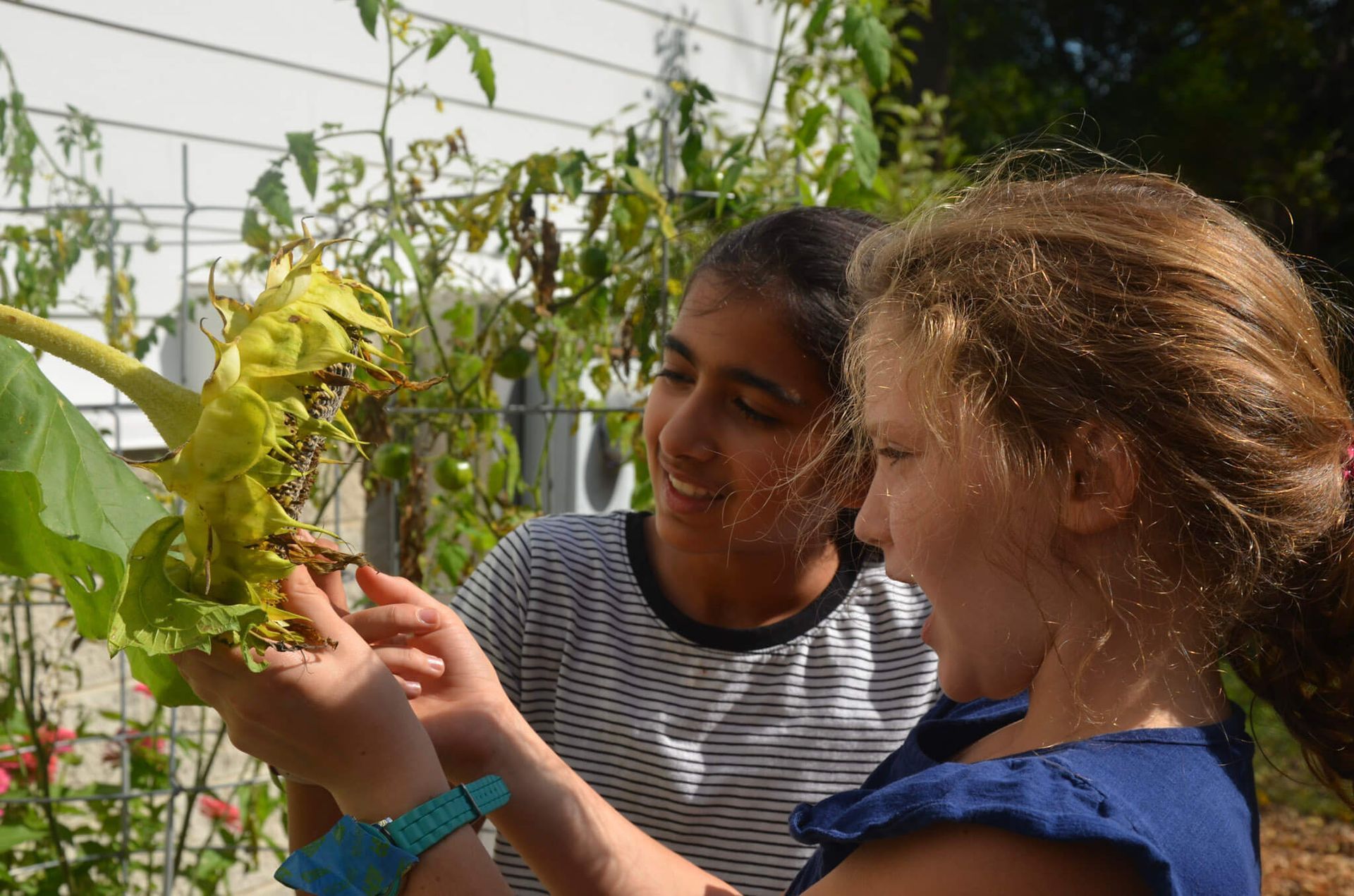
As a mother of two young children under six, I dread cold, snowy weather because of the extra time (and sometimes tears) it takes to get my family ready in the morning. In my house, the mudroom is affectionately nicknamed “The Airlock.” A gate keeps toddlers from wandering off and dogs from stealing boots and mittens while we are trying to get ready for school. Nobody goes in or out until all dressing tasks have been completed, clothing has been stored in the appropriate places, and the floor has been dried with a child-sized yarn-mop.
However, when I was teaching a Montessori Primary class, I loved cold and snowy weather. While the salt and slush were still a headache, the act of removing cold weather gear upon arrival and suiting back up for dismissal were fantastic learning opportunities for the children. I frequently observed that new children, once they had mastered the classroom routines of dressing and undressing, seemed to suddenly acquire a sense of “belonging” in the primary environment and approached new lessons with vigor and a positive attitude.
Believe it or not, learning to get dressed is more than just a self-care skill for children. A child mastering buttons and zippers is learning an indirect lesson about mechanics. A child realizing that they have to put their snow pants on before their boots is preparing to become a logical thinker. A child reaching back to put his arm through the second sleeve of his coat is using his memory and sense of touch together to imagine the location of his sleeve in the absence visual information. This is an early form of abstract thinking!
As parents, we may be tempted to overlook self-care skills in favor of more “academic” ones related to reading, writing, and mathematics. However, what makes Montessori education truly remarkable is the recognition that a child who is striving to become independent with tasks such as dressing is actually organizing her brain in preparation for academic work. I’ve come to believe that this is one of the major reasons that Montessori children are able to enthusiastically tackle academic challenges at an age that traditional education considers preposterous.
We all want our children to acquire the skills, confidence, and pride that go along with dressing independently. Hopefully, understanding the benefits of acquiring this skill will help you embrace the extra challenges that winter weather poses to your morning routine!
As Forest Bluff School teachers, we are struck by our parent community's whole-hearted dedication to embracing Montessori principles at home. This dedication enables our students to do amazing things. Currently, our Secondary Level students are preparing to embark on a service trip to Ely, MN that includes dog sledding and winter camping. The next time you are cheering on a child who is struggling to zip their coat, remember that you are helping your child acquire the independence and confidence to participate in trips like this!
For Montessori ideas and inspiration to help you assist your child at home, visit the Aid to Life webpage. This NAMTA initiative includes information about dressing skills (included under the Independence section) as well as information about Movement, Communication, and Self Discipline. Several Forest Bluff families were kind enough to share their photos with the initiative, so as you browse the site you are likely to see some familiar faces!


